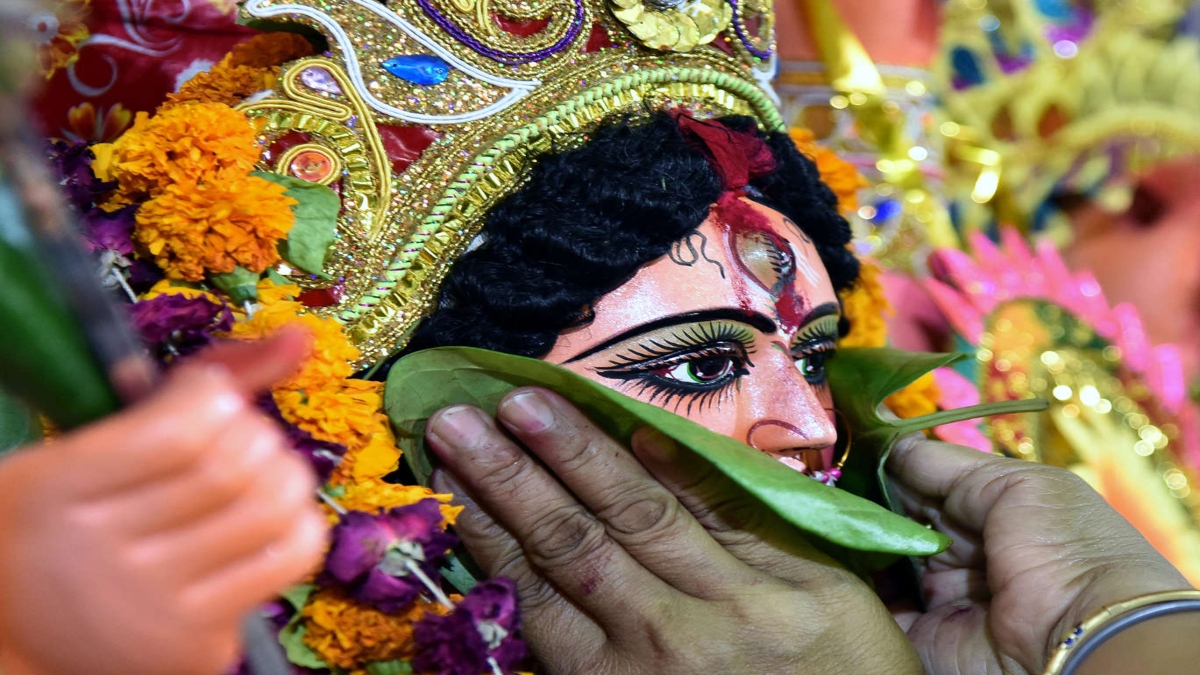


Our soft power based on our cultural heritage, is India’s gift to this message of where the forces of fundamentalism and extremism are raising their ugly heads. Ours is a composite cultural spread. It reflects the evolution of our history. India seamlessly absorbed other cultures but never lost her own. Sri Aurobindo says “The heavens beyond are great and wonderful, but greater still and more wonderful are heavens within you.” Universality and humanism are two of the essential characteristics of Indian culture. The bequest of Indian cultural heritage was witnessed on 15th December 2021, at the 16thSession of the Intergovernmental committee for Intangible Cultural Heritage, wherein India succeeded in inscribing Durga Puja in Kolkata on the Representative List of the Intangible Cultural Heritage of humanity. Durga Puja marks the victory of the Goddess Durga over the demon Mahishasur. The festival glorifies the triumph of good over evil.
Durga Puja is the greatest Hindu festival in which God is adored as mother. It emphasizes the maternal aspect of God. Durga represents the Divine mother. Shakti is the omnipotent power of the Lord, or the cosmic energy.This shows the ethos of Indian culture “yatra naryastu pujyante ramante tatra devatayatraitastu na pujyante sarvastatraphala kriyah” meaning where women are honored, there the deities are pleased; but where they are not honored, no sacred rite yields rewards. God resides where women worship. This shows how women in India is well equipped in terms of knowledge, competence and capacity to deal with different situations not just today but since ancient times.
The inscription of Durga Puja in Kolkata was made possible with the support of 19 out of the 24 members of the ICH Committee. It has brought great joy to Indians, but behind the joy was the strategy and hard work of the Narendra Modi government. It sent Mr. Vishal V. Sharma to Paris last year to coordinate the efforts, appointment of Mrs. Meenakshi Lekhi as both the MoS for External Affairs as well as for Culture. The hard work of the officers in Team MEA led by the Foreign Secretary and the UNESCO division, Team Culture and the Team in the Permanent Delegation of India in Paris saw a lot of positive results in UNESCO.
UNESCO defines intangible cultural heritage as “traditional, contemporary and living at the same time”, “inclusive”, “representative”, and “community-based”. It is “an important factor in maintaining cultural diversity in the face of growing globalisation” — and “an understanding of the intangible cultural heritage of different communities helps with intercultural dialogue, and encourages mutual respect for other ways of life”. “Durga Puja is seen as the best instance of the public performance of religion and art, and as a thriving ground for collaborative artists and designers,” UNESCO added.
The Modi government is deepening the footprint of India’s cultural diplomacy on the global horizon in the 75th year of India’s independence. In the past couple of months coinciding with the Azaadi ka Amrut Mahotsav program, India in UNESCO has succeeded in getting 2 nominations inscribed on the UNESCO World Heritage List: Rudreswara Ramappa Temple (Telangana) and Dholavira (Harappan site in Gujarat). India was also elected to the Executive Board (2021-2025) of UNESCO getting a 164 out of 173 votes cast, which was 11 votes more than China. India also got elected to the World Heritage Committee and as chair of the Finance & Administration Commission of UNESCO.
India’s significant global contribution has been the exercise of its soft power, drawing on its ancient cultural and civilisational roots. ‘Vasudhaiva Kutumbakam’ was among the first precursors of Global Citizenship as it is understood today-the concept that all individuals are collectively responsible towards each other and their shared future. It forms the basis of UNESCO’s ongoing dialogue between cultures, religions and civilisations. Today, India’s soft power as represented through her vibrant cultural and civilisational heritage and through her Diaspora spread worldwide, serves as a powerful reminder that India’s values of,tolerance, inclusiveness and cross fertilisation of cultures which are an intrinsic part of our civilisation, are more relevant than ever before in scenario of today.
India is witnessing a more assertive and proactive MEA and Ministry of Culture with active Ambassadors overseas and it is bringing rich dividends to India. Soft power is a more potent force than guns and bullets. India’s soft power diplomacy is winning hearts and UN elections.